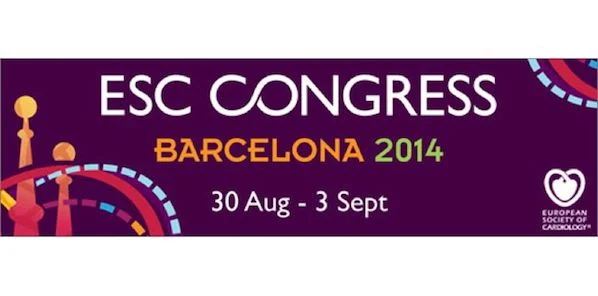ESC Gold Medals were awarded over the weekend to three distinguished figures in the field of cardiology: cardiac surgeon Alain Carpentier, Oxford epidemiologist Sir Rory Collins and Czech Republic cardiologist Petr Widimský. The trio received their awards during the Inaugural Session of the 2014 ESC Congress in Barcelona, Spain.
Professor Alain Carpentier
Alain Carpentier has been a pioneer in biological heart valves since the 1960s. Inspired by the failure of an implanted valve that caused the patient to suffer a stroke when a clot formed on the device, Carpentier obtained a PhD in chemistry in 1975 in order to demonstrate the use of animal tissue for reducing immunogenicity.
The combination of animal tissue and mechanical infrastructure led Carpentier to experiment with porcine tissue valves in Teflon-coated metallic frames. His ‘bioprosthesis’ was first implanted in March 1968, and the Edwards laboratory eventually sold the product as the Carpentier-Edwards heart valve.
Later, convinced of the superiority of native valves over valve replacements, Carpentier released his ‘French Connection’ paper. The innovation of the Carpentier-Edwards ring is that initiated the era of valve reconstruction, allowing patient to keep their own valves thanks to the ring which stabilised and reshaped the structure which holds the valve.
The indefatigable Carpentier continued his innovative research using sensor technology combined with animal tissue in the development of a permanent heart implant. The first bioprosthetic artificial heart implantation was performed on a 75-year-old patient with end-stage heart disease in December 2013. The CARMAT device (so-named from a blend of Carpentier’s name and device manufacturer Matra) contains sensors adapted from missile technology which detect pressure and permit the internal control of blood flow.
Professor Sir Rory Collins
Sir Rory Collins was knighted for his service to science in 2011. Nevertheless, he received his ESC Gold Medal in Barcelona with humility. “For someone working in the field of cardiology, it’s the ultimate recognition,” he said.
Collins is known for his role in the Heart Protection Study published just over a decade ago, which showed that statins help to reduce the risks of heart attack and stroke not only for those with high cholesterol, but also for patients whose cholesterol levels are not initially elevated. The results were confirmed by the Cholesterol Treatment Trialists’ meta-analyses, also led by Collins.
Recent discussions have focused on the benefits and side effects of offering statin therapy to patients whose risk of CVD is relatively low. Collins has shown public support for the position of the UK-based National Institute for Health and Care Excellence (NICE), which proposed a reduction in the statin therapy threshold from those with a 20 percent risk of CVD to those with a 10 percent risk, over ten years.
Collins has directed the Clinical Trial Service Unit (CTSU) along with Professor Sir Richard Petro for more than two decades. The trials performed by the CTSU, including studies of aspirin, blood pressure, smoking, statins and streptokinase, have influenced positive health trends in the UK. Indeed, vascular mortality among the middle aged have been cut by more than half in the last 30 years. Collins continues to advocate for the concepts of large-scale observational trials of prevalent conditions for the benefit of public health.
Professor Petr Widimský
Petr Widimský’s return to Barcelona for the 2014 ESC Congress marks 15 years since his presentation here of the PRAGUE 1 study. In the intervening years, additional PRAGUE studies have continued Dr. Widimský’s work on primary PCI as the preferred perfusion strategy in angioplasty. Whereas the initial PRAGUE study demonstrated the advantage of PCI over thrombolysis in acute MI, the results of PRAGUE 2 led to the adoption of a primary PCI programme in the Czech Republic, and the subsequent adoption of the first guidelines published by the Czech Society of Cardiology in 2002.
Today, the efficient infrastructure of the PRAGUE programme has been translated into other cardiology investigations. 19 PRAGUE studies have been launched, 12 completed, with two more are in the planning stages.
Prof. Widimský is also credited with launching the ESC’s ‘Stent for Life’ initiative with William Wijins in 2008. Following a survey which showed disparity in the use of primary PCI for MI throughout European countries, ‘Stent for Life’ encouraged equal access to primary PCI by citing guideline implementation barriers and outlining plans for the individual needs of different countries. As a consequence, PCI rates have doubled in six target countries.
Prof. Widimský shared credit for the ESC honour with his colleagues. “The ESC Gold Medal represents the height of my professional career. But it isn’t just a personal honour — the award acknowledges the achievements of a great many co-workers who took part in the PRAGUE studies,” he said.
Reference: European Society of Cardiology
Image Credit: Google Images







